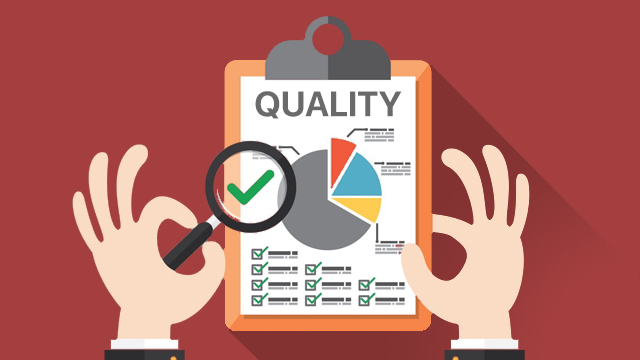blog
Quality: is "zero defects" the main goal?
November 14, 2019
2 min read

On World Quality Day, recognized by the United Nations in 1990 and celebrated this year on November 14th, we would like to discuss how quality affects productivity and competitiveness and how it impacts the stakeholders. Is "zero defects" the main goal of Quality?
What is Quality?
Usually, the definition of Quality may be "the way of being, good or bad", as well as excellence, capability, talent, fit.
Every organization has a Mission, a purpose, through which they expect to be recognized by the main interested entities. They choose their way based on the Vision they have, guided by their Values, principles, and considering the requirements of the entities which impact or are impacted by the organization: the stakeholders.
As such, Quality is a set of ways that allows a company to satisfy its stakeholders' requirements efficiently and effectively. Therefore, the adequate quality level is defined by the stakeholders. Quality management is about pursuing the excellence path in a conscient and continuous way.
To identify the stakeholders is a relevant exercise when identifying the critical processes within a Quality management system: what do our clients require? What do our shareholders value? What makes an employee productive, motivated, truly happy? Who are the suppliers we want with us? Which part of our production process can be outsourced? Which are the laws and regulations on our business? How can we cooperate with the community? The answers enable us to know our stakeholders.
Additionally, we need to look into the organization to deeply understand it and its surroundings. So, we should ask: what are we doing properly? What should we improve? Which are the opportunities and threats we can identify in the market?
Considering that we expect to continuously evolve and that the market keeps changing, these questions cannot be asked just once. We must reassess, refocus and reformulate the system, without fearing change or being challenged. This assessment and action toward excellence are what produce a robust Quality System. To reach it, we need strong governance, with leadership by example and encouraging action.
Why should we care about Quality?
Organizations, as people, need to continuously reassess and reinvent, to look to the challenges as an opportunity to cast away old habits which no longer add value, and look to the present and the future as a new opportunity to be more efficient, productive, attractive. This capability of seeing change as a challenge or an opportunity has a positive effect on all stakeholders: we will have more satisfied clients, happy employees, shareholders with higher returns, suppliers wishing to innovate, and a community that reflects these enhancements.
Quality is not just a to-do list, but a way of thinking, feeling and working. It is the satisfaction of accomplishing tasks each day, even considering that we can do better, seeking excellence. Thus, Quality can be applied at any organization and be everyone's responsibility, from top to bottom.
At Servdebt we value Quality as a principle: everything we do can be improved, become more efficient, yield higher returns and, most of all, increase happiness and satisfaction. We work with this mindset. The path to excellence is made with people who live by these principles, who stick to permanent development, each of them with different levels of responsibility and involvement in the evolution process. Each of us, in our tasks, create value, having the opportunity and responsibility to contribute to the Quality of what we produce, since the goals are only achieved if we all do our tasks properly.
Growing Together with Quality.
